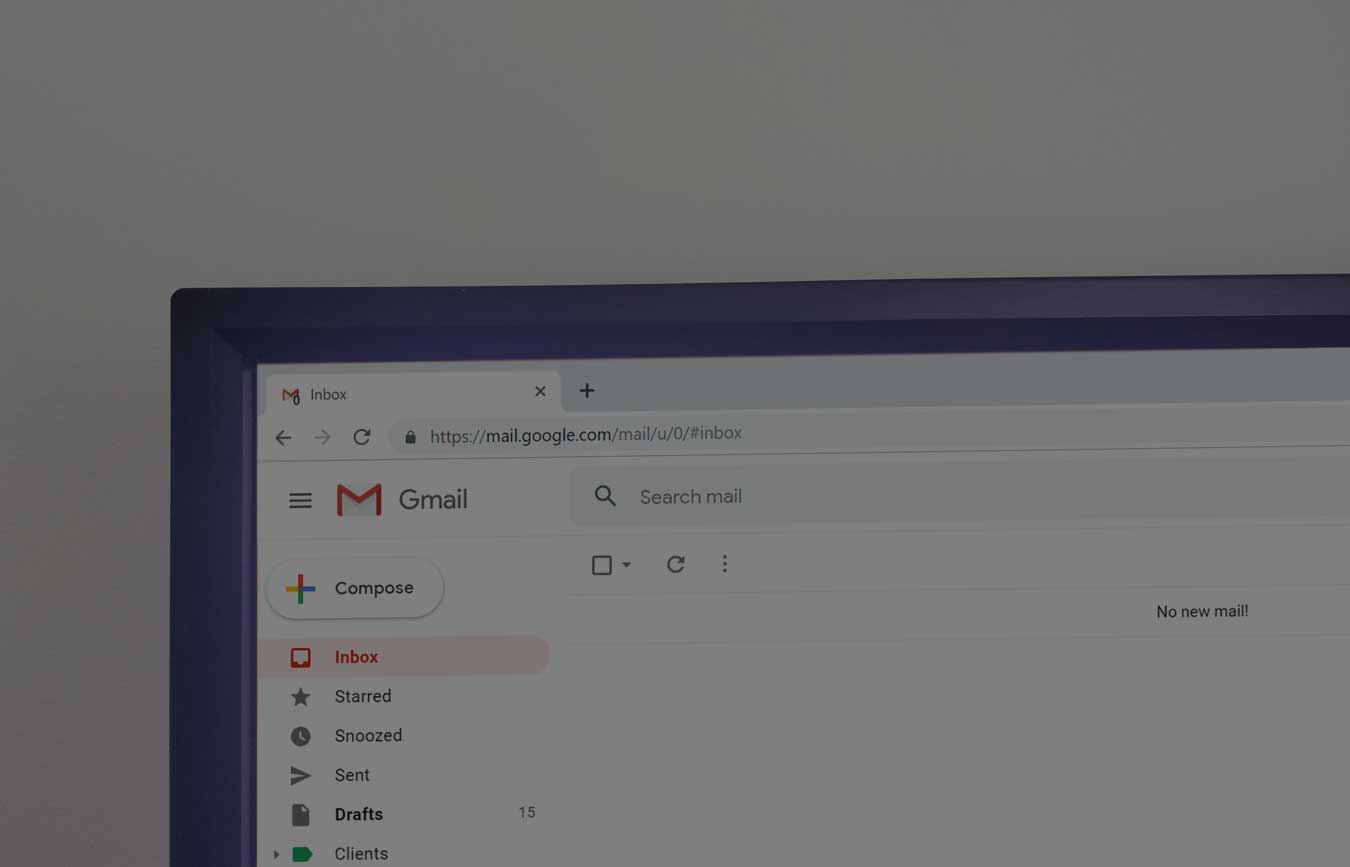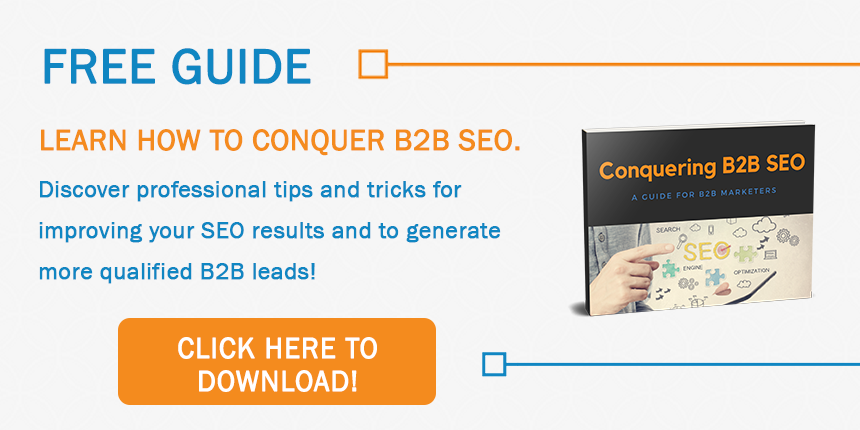
There are lots of different mediums we use in digital marketing, and it’s tempting to see each one as distinct from the other. But however distinct these mediums might be, they are all intertwined and complement each other.
One such example is email marketing’s ability to improve your SEO.
By building a relationship with your audience through email marketing, you can gain important insights and help your website to rank better in the search engines
How Does Email Marketing Help SEO?
Engagement
Whenever you search the internet you seem to be asked for your email address everywhere you go. We’re so used to having our inboxes spammed, that in general, we’re very careful about who we give our email addresses to.
This means that the people who do give you their email addresses are very engaged with the content you are creating. These people make up your ideal audience and they’re going to spend longer on your site, share more of your content, and leave more comments.
You want to get your content in front of these people because engagement is a positive sign for SEO. More social shares, lower bounce rates, and more time spent on page all help your rankings, and email marketing can help with all of them.
Content Strategy
If only you had a ready-made audience with which you could test your content…
Oh wait, you do!
Your email database allows you to test how effective your content, headlines, and calls to action are, as well as get feedback from some of your most engaged readers.
This is invaluable information for planning your content strategy and it filters through to your SEO. One of the most important parts of SEO is providing quality content that answers the questions your audience is asking, and email marketing is a great tool to figure out what those questions are.
Now that we know how email marketing impacts SEO, here are a few tips on how to do it right:
5 Email Marketing Strategies to Improve Your SEO
1. Segment Your Audience to Personalize Content
Personalization drives engagement. Email marketing gives you the ability to segment your list so you can provide people with the personalized content they love.
Not only can you segment your list through simple metrics such as gender, age, and location, but you can also delve deeper with some more advanced segmentations such as:
- Website interactions
- Lead’s position in the sales funnel
- Total spend
- Past purchases
The more you can personalize your emails with content relevant to the reader, the more you are going to boost engagement with your website. As we mentioned before, lower bounce rates, more time spent on a page, more comments, and more social shares are all elements that look good in the eyes of the search engines, and they’re all helped by getting the right people to the right content.
2. Track Analytics to Test the Effectiveness of your Content
Many marketers use their email list as something of a laboratory where they can test the effectiveness of their content, messages, headlines, and calls to action.
Email services give you vital metrics such as open rate, click rate, action rate over time, and unsubscribe rate, which help you get a picture of what works and what doesn’t work in your email marketing.
Through A/B testing, you can compare the effectiveness of different messages and find which ones resonate best with your audience. This doesn’t just help you craft better emails, but it also gives you a better idea of what you should be focusing on with your website content.
3. Turn High Performing Emails into Content
Keyword research is a big part of SEO, and it helps us understand what keywords you need to rank for. However, email marketing gives you a different insight into the content you should be creating by getting information straight from your target audience.
For example, if you send a short email to your subscribers titled “7 5K Courses You Have to Run Before You Die” and it has a high open-rate with lots of people clicking the links, then you’ve got a ready-made article title that you know your audience is interested in.
You can expand on your email and turn it into a comprehensive article on the “5K Courses You Have to Run Before You Die.”
We often try to reach huge audiences with our posts, but it can sometimes be beneficial to limit your audience so that the content is relevant to those people who are most likely to engage with it.
Email marketing gives you the opportunity to find the content that is relevant to your audience and turn it into a valuable page on your website.
4. Ask Your Audience What They Want to See
You can try and infer what your audience wants to see from the analytics, or, you can go right ahead and ask them with an email survey.
SEO is about giving people high-quality information that addresses the questions they have. That question might be as simple as “what is the best way to tie my shoelaces for a 5K race?” but you can’t address the question unless you know people are asking it.
We can try and guess the questions our audience is asking, but we can also use email marketing to simply ask them what they want to see.
Email is a great way of building a relationship with your audience because it gives you multiple touchpoints with them. As you build trust and deepen the relationship by offering your audience value, ask them what they want to see from you.
There are lots of different ways to incorporate surveys into your marketing and the insights can be extremely helpful for your SEO.
Keyword research allows you to see the queries people have been searching in the past, but asking your audience what they want to see allows you to see the queries of the future.
5. Keep Your Best Content Evergreen by Sending it in Your Welcome Email
For many websites, a large proportion of their traffic comes from a small percentage of pages. These key pages rank well in the search engines and keep people coming to the website, but how can a website continue to ensure these pages keep attracting visitors?
One of the key aspects here is relevance. If Google sees that people are still engaging with the content, then it’s going to see it as a good sign that the page remains relevant.
Email marketing can help this by continuing to funnel people to key pages.
Welcome emails, in particular, have a high open-rate, and therefore are a great place to showcase your best articles. Not only does this allow you to show off your best work, but it also means you continue to drive engaged traffic to your most important pages.
Takeaways
You can leverage email marketing to improve your SEO if you’re offering your subscribers value and building meaningful relationships with them. Through these relationships you can get a better understanding of your target audience and drive engaged visitors to your website pages.
Not only does this help give your most popular content more exposure, but it also helps you craft the content and messages that are going to resonate with your audience. Being able to answer the questions your audience is asking is a fundamental part of SEO and email marketing can give you these vital insights.
If you’ve got an email database, then you should be looking at it as an important tool for improving your SEO. It’s a list with your most engaged followers, so use it to find ways of improving your website’s offerings.






